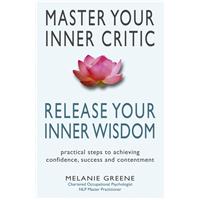A non-surgical skin resurfacing procedure in which a top layer of the skin is removed.
Tag Archives: new
Mental decline is No1 fear of ageing

London: Research conducted by Help the Aged has revealed that the UK public rank mental decline higher than any other worry about ageing, including big issues like the pensions crisis and the fear of isolation (1).
In response to this concern, the Charity has launched a new website www.disconnectedmind.org.uk to help mobilise public support for one of the worlds most promising scientific projects to combat the condition.
Help the Aged has committed to fund this historic project, called The Disconnected Mind, through to its conclusion in 2015. Donations are needed now to maximise the possibility of a breakthrough in the fight against early mental decline that usually leads to dementia (2).
The project is unique because the scientists leading the study at the University of Edinburgh will revisit 1,000 volunteers, who are now aged 71, who took part in the Scottish Mental Survey in 1947 a survey that has not been repeated since. The project will compare the participants childhood mental ability, current ability, biological health and 60 years of life experience.
www.disconnectedmind.org.uk uniquely divides the project into tangible pieces so that the public can see how any donation from them, however small, can make a big difference. For example, just £45 would fund the in-depth examination of one participants test results, which could hold the secret to the prevention or treatment of mental decline.
Early mental decline often leads to dementia that affects 700,000 people in the UK. Tragically, this is expected to rise to over a million by 2025 unless new ways are found to combat it.
More details on the survey:
(1) Survey by GfK NOP for Help the Aged. A sample of 1000 adults aged 16+ in the UK were interviewed during the weekend of 4th 6th May 2007. This survey was designed to be nationally representative of the telephone owning population of the UK. It revealed that mental decline ranks higher (41% of responses) than any other concern about ageing, including big issues like the pensions crisis/lack of savings and fear of isolation. Initial mental decline often leads to full dementia which the survey revealed is the age-related health condition of greatest concern, with 53% of respondents ranking it above strokes, incontinence and osteoporosis.
(2) Four out of five people who experience mild mental impairment go on to develop dementia within six years.
The team of experts at the University of Edinburgh performing The Disconnected Mind project are Professor Ian Deary, Doctor John Starr, Professor Jim McCulloch, Professor Joanna Wardlaw, Professor Richard Morris and Doctor Karen Horsburgh.
Help the Aged is the charity fighting to free disadvantaged older people in the UK and overseas from poverty, isolation, neglect and ageism. It campaigns to raise public awareness of the issues affecting older people and to bring about policy change. The Charity delivers a range of services: information and advice, home support and community living, including international development work. These are supported by its paid-for services and fundraising activities – which aim to increase funding in the future to respond to the growing unmet needs of disadvantaged older people. Help the Aged also funds vital research into the health issues and experiences of older people to improve the quality of later life.
How to Master your inner critic and succeed in life

Do you know someone who?
* loses sleep worrying about what they havent done?
* finds it difficult to list their achievements?
* allows criticism to get them down?
* feels terrible when they make a mistake?
The inner critic is the little (or, sometimes, big) voice in our heads that says: Youre not good enough or Why did you do that? or Nobody wants to be friends with you!”
This negative voice can have a profound effect in personal relationships or professional situations. And yet, (if were honest) many of us have an inner critic that can hold us back, make us feel inadequate, make us feel unnecessarily guilty and can make us downright miserable if we dont learn to control it.
In a new book, Master Your Inner Critic, Release Your Inner Wisdom chartered occupational psychologist Melanie Greene shares her 20 years of experience to show you how, step-by-step, you can transform your thoughts, feelings and behaviour by learning to celebrate your strengths and to recognise the positive.
Master that inner critic and release your own inner wisdom to become more confident, successful and content in all aspects of your life.
Melanie Greene is a chartered occupational psychologist and NLP master practitioner. She has 20 years experience as a coach, trainer and consultant in private and public organisations, and runs her own consultancy, Grovelands Associates www.grovelands.org
Master Your Inner Critic, ISBN: 978-1-84024-630-8 Paperback January 2007 £8.99, is published by Summersdale. It is available through all good bookshops and internet booksellers or by telephoning Mail Order at Summersdale Publishers on: +44 (0) 1243 771107
Jelly supports damaged discs to fight back pain
An injection of a jelly-like substance into damaged spinal discs could cure back pain for many sufferers.
A trial taking place in the US and Europe, in which patients with disc problems are injected with a liquid that becomes a jelly in the disc, restoring function in the early stages of degenertive problems. The treatments means it is less likely patients will need surgery in future and the spine is likely to remain more flexible.
At the moment disc back pain is treated with painkillers, physiotherapy and surgery where the disc is removed and a bone graft inserted, but this may lead to spinal stiffness.
This new treatment can be used alongside what is known as microdiscectomy operation, in which the soft inner core of the disc is removed to reduce pressure on the surrounding nerves. The new material then injected into the space created when the old filling is surgically removed from the disc.
More information at www.spinewave.com
New longevity study
Boston: A new study is trying to determine the secret to living to age 100 by looking at genetic and environmental characteristics common to people in families who live longer.
Dr Thomas Perls of the Boston University Medical Centre which is carrying out the study says: Exceptional longevity runs very strongly in families. Where people have a markedly increased chance of living longer so we want to find out what these family members have in common, as in environment, behavior and genes.”
One such person is Tony Pierro, who is 110-years-old and credits diet.
Three good meals, he said. Nothing to worry about.
His brother, Nick Pierro said: The secret is to learn early in life to have peace of mind.
Nicks son, Rick, 57, whos also taking part in the study, agrees.
I think you have to go with their outlook – have no problems, no worries, keep headaches to a minimum, good eating. Your health is very important, he said.
Researchers conducting the study are looking for families with at least two siblings who are 90 or older to take part in the study.
